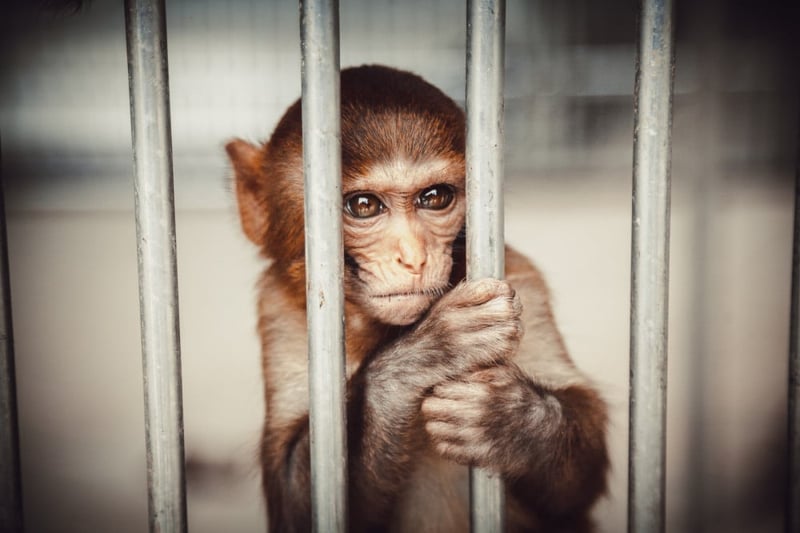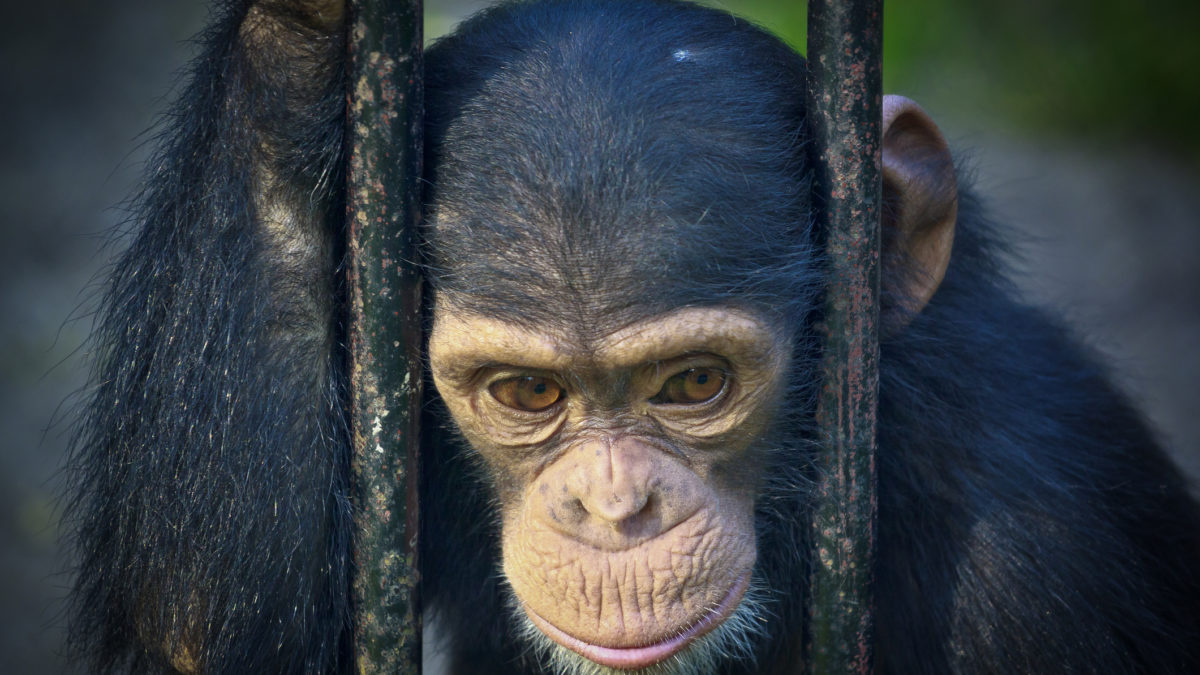Captivity and Its Effects
Monkeys are intelligent, social creatures who naturally thrive in the wild, swinging freely through forests and living in complex communities. However, life in zoos often strips them of their natural behaviors and freedom. The confined spaces and lack of stimulation can lead to boredom, stress, and even depression.
 Photo: A monkey sitting in a small zoo enclosure (source: Wikimedia Commons)
Photo: A monkey sitting in a small zoo enclosure (source: Wikimedia Commons)
Loneliness and Social Isolation
Many monkeys in captivity suffer from loneliness. In the wild, they live in large social groups, but in zoos, they are often kept alone or in small groups that do not replicate their natural social structures. This isolation can cause anxiety and abnormal behaviors such as pacing or self-harm.
 Photo: A lonely chimpanzee in a zoo enclosure (source: Wikimedia Commons)
Photo: A lonely chimpanzee in a zoo enclosure (source: Wikimedia Commons)
Hope for Better Conditions
Thankfully, many zoos and animal sanctuaries are working to improve the lives of captive monkeys by creating larger, more naturalistic habitats and enriching their environments with toys, puzzles, and social opportunities. These efforts help reduce stress and encourage natural behaviors.
 Photo: Monkey enjoying a spacious and enriched zoo habitat (source: Wikimedia Commons)
Photo: Monkey enjoying a spacious and enriched zoo habitat (source: Wikimedia Commons)